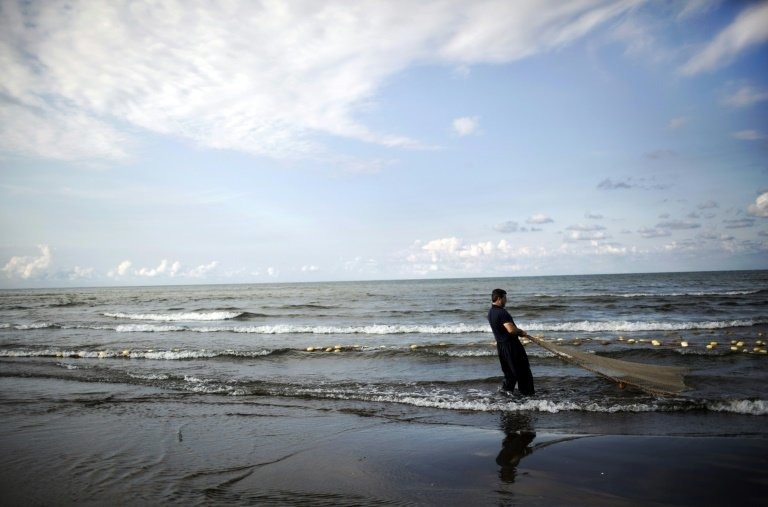This summer, leaders of the five states encircling the Caspian Sea - Kazakhstan, Russia, Iran, Azerbaijan and Turkmenistan - signed a landmark declaration determining the legal status of the sea during the fifth Caspian Summit in the Kazakh city of Aktau.
After the collapse of the Soviet Union in 1991, there were disputes over how the shoreline of the inland sea should be divided between the four newly-emerged states and Iran.
It took 22 years and more than 50 meetings of working groups in order to prepare the Convention on the Legal Status of the Caspian Sea. Now, its five bordering states join forces and open a new chapter of cooperation in the fields of trade, economy, transport and security.
The President of Kazakhstan Nursultan Nazarbayev, noting the success of the talks, stressed that in the process of preparing the Convention, all countries proceeded from the interests of ensuring political stability, development of the Caspian region, preservation and enhancement of its natural resources.
“The Convention is a kind of Constitution of the Caspian Sea. It is called upon to resolve the entire complex of issues related to the rights and obligations of coastal states, and also to become a guarantor of security, stability and prosperity in the region,” Nazarbayev stated.
The convention regulates the rights and obligations of the parties with respect to the Caspian Sea, including its waters, the bottom, subsoil, natural resources and airspace. Special attention was paid to issues of ensuring security, and preventing the consequences of emergencies and military activities of the Caspian states.
The President of Kazakhstan pointed out that the Caspian region has a unique history and diverse culture. Significant human resources and rich natural resources are concentrated here. The sea also has an important geopolitical significance due to its favourable location.
“To date, the Caspian countries have great potential and are developing dynamically. The total population of our states is about 240 million people. All that has made it necessary to jointly resolve the entire range of issues related to the Caspian Sea,” Nursultan Nazarbayev said.
The five states had different views on maritime boundary delimitation, using mineral resources, demilitarisation, and security as well as international law enforcement. Especially Iran, Azerbaijan and Turkmenistan in the past have tangled over the rights to oil and gas fields, sometimes accompanied by hostile statements.
In the signed Convention on the Legal Status of the Caspian Sea, all signatory parties agreed that the water surface will be legally treated as a sea, keeping it open for joint use, whereas the seabed will be considered as a lake and therefore accessed under international legal framework.
“We have established territorial waters with a width of 15 marine miles, while their external borders acquire the status of state ones. The territorial waters are adjoined by ten-mile fishing zones, where each state has exclusive rights for fishing,” the Kazakh Head of State said.
He added that outside the fishing zones, the common water area remains unchanged. Outside the sea frontiers, freedom of navigation will be applied to ships flying the flags of coastal countries. Each state implements sovereign rights to subsoil use within the boundaries of its bottom sector. At the same time it is possible to lay main pipelines and cables along the seabed with the condition of observing ecological requirements.
According to Nazarbayev, the leaders furthermore agreed to set up a “special mechanism of regular five-party consultations under the auspices of the foreign ministries” to implement the provisions of the convention. “The Convention not only creates a favourable legal basis, but also opens the way to a new cooperation basis,” the Kazakh leader emphasised.
The Convention gives special attention to the solution of environmental problems. The Caspian Sea has a number of different species of sturgeon, the fish that yields the highly prized caviar delicacy. Around 80% of the world's caviar is sourced from the Caspian Sea. In this regard, criminal groups of poachers are highly active in the region. “In order to preserve the unique ecological system of the Caspian Sea, it is necessary to adopt a separate document to combat the illegal fishing of biological resources,” the Head of Kazakhstan said.
Another significant point of the agreement is a cooperation in combating terrorism. There are unstable regions close by: the Middle East and Afghanistan. Meanwhile, there are offshore oil and gas platforms in the Caspian Sea and any terrorist attack can lead to serious consequences for all.
The possibility of building a gas pipeline on the Caspian seabed from Turkmenistan to Europe via the so-called Trans-Caspian Gas Pipeline, a critical development for European energy diversification, has additionally been welcomed by the European Commission.
The Brussels Times

